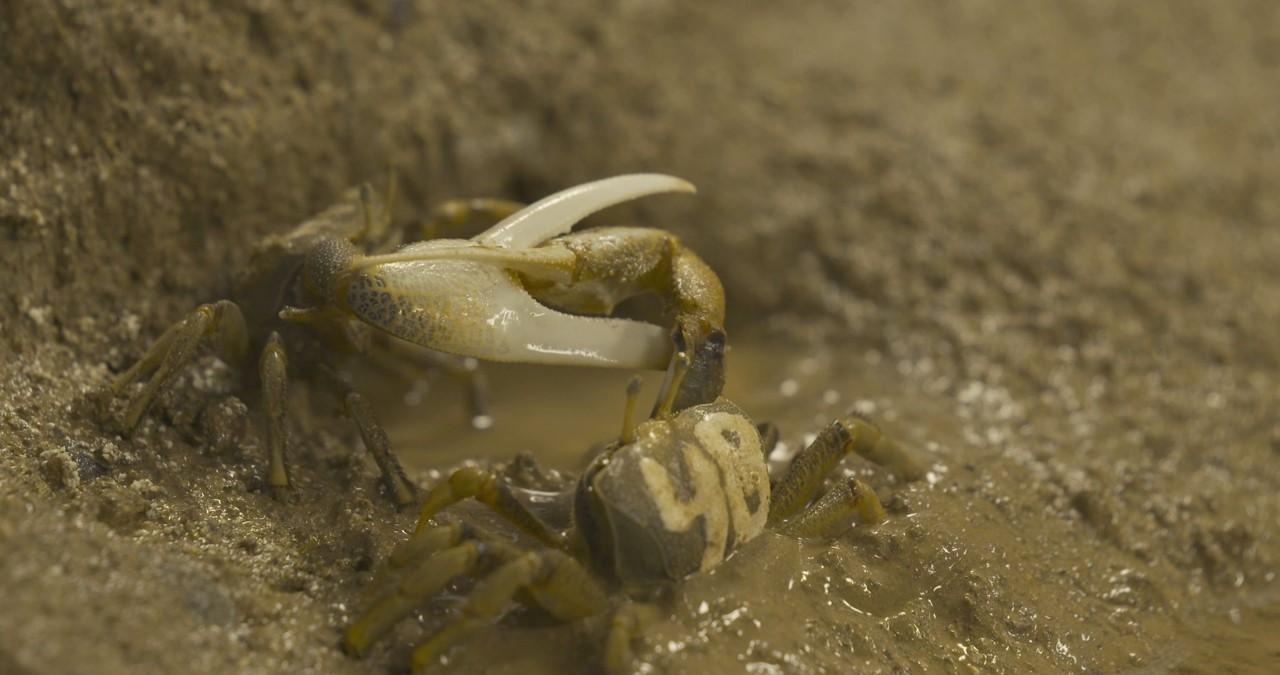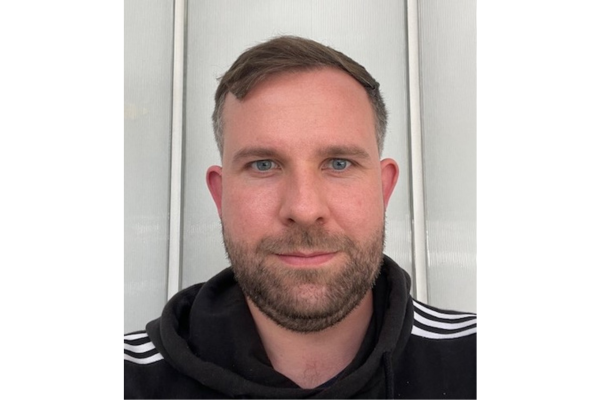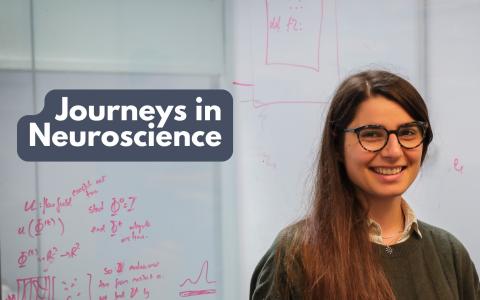
Neuroscience career journeys - Aquatics Manager
Joe Higgins, Aquatics Research Facility Manager at SWC, has designed a specialised research facility and led the design and construction of a custom tidal aquarium to house fiddler crabs—a species the team is studying to unlock insights into brain function, specifically spatial navigation. Joe manages the crab colony and their welfare, while also collaborating with the Branco and Margrie labs to plan research studies.
We spoke with Joe about his career in aquatics and his advice for anyone wanting to work in neuroscience.
Can you describe a typical day?
The main part of my job is husbandry. Monday, Wednesday, and Friday involve feeding, cleaning, water testing, water changing and making sure the environmental conditions are right in the six aquariums currently in the SWC. I ensure the holding rooms the crabs are in have the correct lighting schedules, temperature and humidity. Alongside that, I keep records of the husbandry I've done with each aquarium – you could describe that as database management. I also conduct censuses in each aquarium every six weeks, to keep an eye on our numbers. I relay all of this information back to the scientists which feeds into their work and future projects. I also manage crab imports, facility maintenance, consumables, stock rotation and general organisation of the facility.
The other part of my job is working with the scientists to meet the needs of our research projects. I make sure that we have the appropriate facilities for experiments and that everything is set up correctly for research. That involves building/room design as well as building works – again this is to make sure any building modifications or new facilities are fit for purpose for the research and the crabs.
I also am responsible for all our risk assessments, ensuring we're compliant with health and safety. I’m also working on creating documentation for every task we do – this is a significant part of the work since it’s a new facility.

What's the best part about the job?
I'd say it's working with colleagues who have a very diverse skill set. We are trying to understand how the brain is structured and how it works. I've got my unique part in the team and we've got computer scientists, researchers, research assistants and PhD students. They all bring their own set of skills, which helps us try to understand the brain.
What's the biggest challenge?
It’s working with a species that's not typically used in neuroscience or research, although this is exciting using a new research model can bring its own unique challenges.
That’s why I’m working on creating documentation for everything we do – because it doesn’t exist yet. The aquarium that I built was totally custom and made from scratch. There isn’t another one out there.
Can you tell us about your career and what brought you to the Sainsbury Wellcome Centre?
I’ve kept fish from the age of about three! I managed to stick with it and turn it into a career. I studied fish farming at the University of Portsmouth – it’s a pretty unique degree, there were only 20 of us on the course. After that, I worked on a carp farm, where we reared and managed fish for ornamental lakes, ponds and pleasure fishing. I was also involved in programmes to restock rivers.
Then I moved into biomedical research at the Francis Crick Institute. I was there for approximately 10 years and oversaw/managed the day-to-day running of all the aquariums within the aquatic’s facility. The facility mainly housed zebrafish that are used to study conditions like cancer and heart disease.
What advice would you give to anyone who's thinking about working in neuroscience or aquatics?
Be prepared to give up your time. Especially with animal care, working in a facility like this, you will have to be prepared for that.
Also, keep an open mind, as you could end up working with a whole range of species. It’s not necessarily the projects that you're currently working on, it's your skills that are important. So, if you keep your skills updated you can work with different species and in many different research areas. I think if you do that, you'll come across some cool projects to work on.



